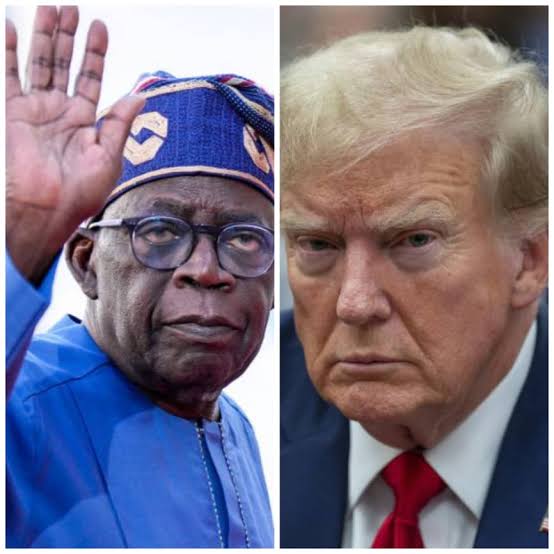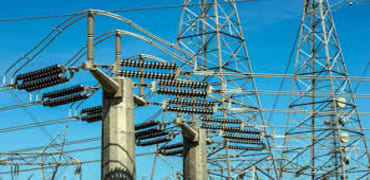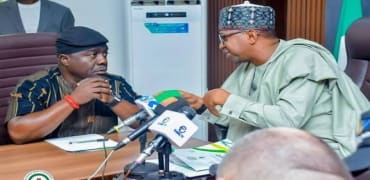America’s Eyes on Nigeria: Professor Sadiq Abba Says U.S. Interests Go Beyond Diplomacy—From Tinubu’s 2027 Politics to Global Energy Power Plays
America’s Eyes on Nigeria: Professor Sadiq Abba Says U.S. Interests Go Beyond Diplomacy—From Tinubu’s 2027 Politics to Global Energy Power Plays
In an exclusive interview, Professor Sadiq Abba, a respected scholar of International Relations at Abuja University, has revealed what he describes as America’s renewed strategic interest in Nigeria—an interest he believes is rooted in political vengeance, energy security, and shifting global alliances. According to him, what the Americans are seeking in Nigeria goes beyond diplomacy or partnership; it is fundamentally about protecting their own long-term interests in an increasingly unstable global order.
Speaking with conviction, Professor Abba outlined three key reasons behind America’s current focus on Nigeria. First, he claimed that one of the United States’ hidden motives is to prevent President Bola Ahmed Tinubu from securing another term in office in 2027. He argued that Tinubu’s alleged financial support for U.S. Vice President Kamala Harris during her campaign has angered former President Donald Trump, who he said “will never forgive that.” Abba maintained that Trump’s renewed political strength and possible return to the White House could drive a vendetta against those who supported his Democratic rivals abroad, with Tinubu being one of them. “Trump is coming to Nigeria not because of religion or ethnicity,” he said. “It’s about why Tinubu, through France, mobilised for Kamala Harris. And though Tinubu is quiet and humble, he can also fight back.”
The second reason, according to Professor Abba, lies in America’s search for a new global energy stronghold. He explained that the Middle East, long regarded as the core of U.S. strategic power, is now becoming politically fragile, with internal unrest brewing in several Arab kingdoms. “The American stronghold in the Middle East is slipping away,” he noted. “They need another stronghold of energy resources.” He suggested that as the region’s stability erodes, the United States is turning toward Africa—particularly Nigeria, Angola, and Algeria—as new centers of oil and gas potential. Abba went further to claim that many global energy experts believe Nigeria’s untapped reserves could surpass those of the Arab world. “America knows this better than anybody else,” he asserted, emphasizing that Nigeria’s energy capacity makes it one of the most desirable partners for future global energy security.
The third factor, Professor Abba said, is Nigeria’s evolving foreign policy stance under President Tinubu. He argued that for the first time since the Abacha era, Nigeria’s leadership is displaying an unusual independence from the traditional influence of the West. “Since Abacha, Tinubu is the first president to look away from the Western world,” he said. He added that Tinubu’s closest ally today is France, but even that relationship has shifted in power dynamics. “It is France that depends on Tinubu now, not the other way around,” he said. Abba explained that as France faces growing resistance in its former West African colonies, it sees Nigeria as a potential lifeline and strategic partner to help preserve its influence in the region. “The French are having problems in West Africa,” he said. “That’s why they are looking at Tinubu as a way out.”
Professor Abba’s comments highlight the intensifying competition among global powers for influence in Africa, with Nigeria emerging as a central player in the evolving geopolitical landscape. His views, though controversial, echo a broader sentiment among scholars that the balance of global power is shifting and that Africa—particularly Nigeria—is becoming a critical arena for strategic and economic engagement. In his assessment, the interplay of energy politics, foreign alliances, and personal rivalries is shaping a new phase in Nigeria’s international relations, one that could redefine its place in the world for years to come.


















